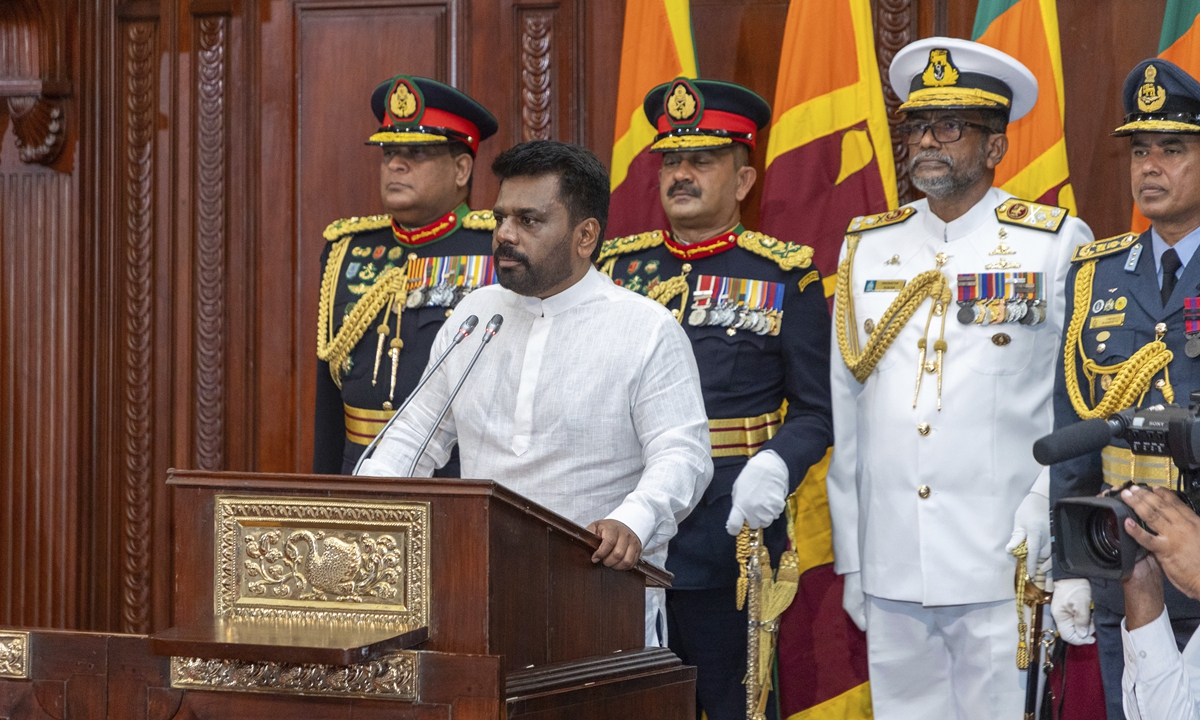
Sri Lanka's new president Anura Kumara Dissanayake addresses a gathering after he was sworn in at the Sri Lankan President's Office in Colombo, Sri Lanka, on September 23, 2024. Photo: VCG
After Anura Kumara Dissanayake of Sri Lanka's Janatha Vimukthi Peramuna (JVP)-led National People's Power coalition is elected as Sri Lanka's new president, Indian media recently showed a complex attitude toward this change, with Chinese analysts saying on Tuesday that India's neighboring countries in the region often share concern over interference, even bullying from India. If New Delhi's foreign policy continues to be driven by mentality of major power confrontation and zero-sum game, regional countries will be increasingly cautious in handling ties with India.
Indian media outlet Deccan Herald said in an article on Tuesday that "Apprehensions in Delhi about Dissanayake are based on the JVP's history of hostility toward India and its pro-China leanings." The JVP is known for viewing India with suspicion, given its ideological ties with China and its opposition to the Indo-Sri Lankan Peace Accord of 1987 and India's presence on the island, as noted by the Indian media outlet Print.
The Times of India said on Monday that, with Marxist leader Dissanayake winning the hotly contested Sri Lankan presidential poll, "India is faced with another challenge in the neighborhood of dealing with a leader who remains a relatively unknown quantity."
But Deccan Herald also noted that Dissanayake has stated in several interviews his willingness to acknowledge India's importance to Sri Lanka.
Lin Minwang, deputy director at the Center for South Asian Studies at Fudan University, told the Global Times on Tuesday that while it's true that anti-India sentiment was not hyped up too much during the presidential campaign, India remains concerned, because it believes that in terms of ideology, Dissanayake and the JVP have stronger and closer ties with China.
Hu Zhiyong, a research fellow with the Institute of International Relations at the Shanghai Academy of Social Sciences, told the Global Times that Dissanayake's victory proves that the people of Sri Lanka desire for change, and they strongly dislike India's interference over their domestic issues in the past and this also happens in other countries in the region.
However, experts said a mentality of zero-sum game or India-China confrontation in the region will further worsen New Delhi's ties with its neighbors. When the people of Sri Lanka and other countries in South Asia benefit by developing ties with China, India should see it as good news about joint development for the whole region, experts said.




